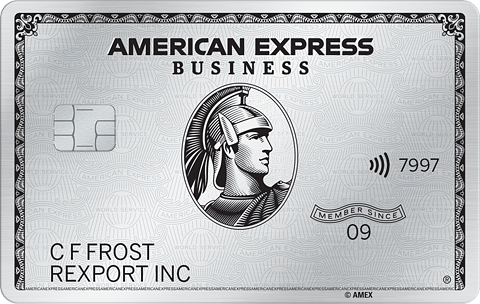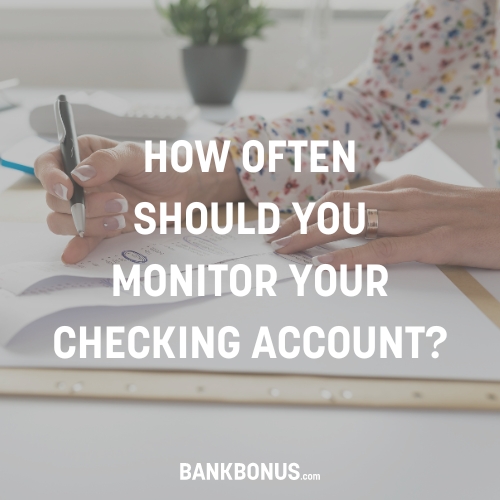Getting a bank account for your small business can be a smart decision that is rewarding in more ways than one. With many different options to choose from, knowing how to choose a bank account for your small business is not always straightforward.
In this article, we will be looking at which small businesses should open a business checking account and what options are available, the benefits you can look forward to, and what you should consider before opening an account.
Are You Required To Open A Small Business Bank Account?
Not all business owners are required by law to have a bank account for their business separate from their personal account.
The IRS requires incorporated businesses to have a business bank account. This includes corporations, incorporated sole partnerships, and partnerships between multiple people.
The U.S. SBA (Small Business Administration) asks businesses to open a business bank account once they receive their EIN – Employee Identification Number – or are ready to start making and receiving payments.
You must also have a business bank account when applying for a business loan by the lender. This alone makes it worth having a business bank account.
Even if you do not need a loan now, requirements and exigencies can change in the blink of an eye, and having your business bank account already set up can see you one step closer to getting that loan in an emergency.
Furthermore, a business bank account should also be required to get merchant services to accept credit card payments.
The easier you make it for clients to pay, the more likely they are to stick around. The more hoops they have to jump through to pay you, the more likely they will take their business elsewhere.
Compare business credit card offers and apply now at CardRatings.com!
Benefits of Opening A Business Bank Account
Business owners who open separate accounts for their small businesses can look forward to several benefits, even if this is not required.
More often than not, these benefits tend to be universal; meaning, that regardless of the type of business you have, you will see the following benefits by opening one or more small business bank accounts:
- It makes it easier to keep tabs on business expenses and income
- A business bank account is required to get a business loan
- Having a dedicated business bank account makes you more credible
- It makes it easier to file taxes
- Offers personal liability protection
Types Of Small Business Bank Accounts
Bank accounts come in different types, helping you accomplish different things.
While a checking account can help you pay suppliers and get paid by your customers, a savings account can help you achieve any capital requirements you might have while enjoying better interest rates on the money your business sets aside.
This section will be looking at different kinds of bank accounts, what they can help you accomplish, and why you might need one.
Business Checking Account
A good business checking account can help you make and receive payments, write checks, and carry out wire transfers.
A checking account will essentially hold your working capital with little to no restrictions on access to funds.
Many banks will also offer you a debit card tied to your checking account, making paying for things your business needs easier than ever before.
This makes it the most basic business bank account to have, but there are still many types of checking accounts to choose from.
Business Savings Account
A small business savings account is one of the best types of accounts to set aside money in.
While checking accounts will typically not earn any interest, savings accounts can have some of the best APY (Annual Percentage Yield) rates around.
This means that while your money is sitting safely in the account, it is also growing, helping you get to your financial goals that much faster.
Cash Management Account
Cash Management Accounts combine features of savings and checking accounts into one, making it easier to manage.
You might not get the high APY rates online banks offer on their savings accounts, but in most cases, accounts are still FDIC-insured.
Before Opening A Business Account
When it comes to opening bank accounts for your small business, there are several things that you need to take into consideration.
Each business will have different requirements, which means that you’ll need to understand what’s important for you and your business and then find the bank account that best serves your needs.
To help you get started, here are some things to consider:
Features
Banks, just like every other business, need to differentiate their products and services on the market. To accomplish this, they include different account features to attract customers.
You can take advantage of this by understanding which features your business needs the most, then opting for the bank and account that delivers those features.
Fees
Different banks have different charges for different things. While some fees are pretty standard across all accounts, such as monthly maintenance fees and NSF (Insufficient Funds) fees, others, such as wire transfers – for domestic and international, can vary by bank and account tier.
Even so, different banks will charge different amounts for the same things. This is why it’s important to understand which bank account features are most important to you and how much they cost.
Bonus Offers
Many banks also have many excellent offers and promotions. This is especially true when opening a new account – with exclusive deals up for grabs by many banks. These bank offers can include anything from free cash to better APY rates or better credit card terms.
| Bank | Bonus | Expires | Requirements | |
|---|---|---|---|---|
| 4.34% APY | August 7, 2024 |
|
Learn More | |
| $300 | October 17, 2024 |
|
Learn More | |
 Amex The Business Platinum Card® from American Express Amex The Business Platinum Card® from American Express |
150,000 Points |
|
Learn More |
Requirements
Many accounts come with requirements such as different opening balance requirements and different monthly balance requirements.
Fulfilling these requirements can also help you avoid some checking account fees, such as the monthly maintenance fees.
In most cases, this fee will be waived if you meet the account’s requirements. These will vary from one bank and account to the next.
Access
Access to your account through technologies such as digital and mobile banking might be essential for your business.
This means that making sure your account includes access to these technologies can help you save a lot of time and money.
Take the time to understand what you can do through the bank app, after all, banking on the go can help you make sure your business remains agile.
Security and Insurance
Ensuring your account is secure and insured by the FDIC (Federal Deposit Insurance Corporation) or equivalent can help you bank with confidence, knowing that if something happens to the bank, your business will not suffer.
What You’ll Need To Open a Small Business Bank Account
When it comes to opening bank accounts for your small business, the financial institution of your choice will need some information and documentation from you.
While this might change from one bank or credit union to the next, in most cases, it will include some or all of the following;
- The business’ name as it is registered with the IRS or DBA registration (Doing Business As)
- EIN (Employer Identification Number) where applicable
- Address of your business
- Contact information
- Your ID
- If your business is registered as a Limited Liability Company (LLC) or a corporation, further documentation and certificates may be required.
Best Banks And Credit Unions For Small Business Accounts
Most financial institutions, including banks and credit unions, offer business accounts that are great for small business owners.
While the best business bank accounts are those that best serve your financial needs and requirements.
Here are some of the best banks and credit unions for small business accounts:
1. Chase
Chase Bank offers three different business checking accounts for your business – each designed for the different stages a business goes through.
Chase sign-up bonuses for business accounts are worth exploring and can put hundreds of dollars in cash into your account.
The monthly fee the bank charges can be waived by maintaining a minimum balance in your account, with the amount varying according to the type of account.
Chase Banks have over 5,300 branches and a strong mobile banking app that includes mobile check deposit. The bank also has HR and payroll programs that can help you streamline how you run your business.
Read our full Chase Bank review
Earn a $300 Bonus
for opening a Chase Business Complete Checking® account
Available nationwide
2. Capital One
Capital One offers two different check account options – Basic and Unlimited, depending on your small business requirements.
There is a monthly fee that can be waived by maintaining a minimum average balance. Both accounts offer unlimited transactions per month and an initial deposit requirement that starts from just $250.
You also get access to Capital One’s online banking – with access to all of the features you might need to carry out all of your banking needs online.
The bank also offers Spark Business IQ, helping you manage your cash flow, finances, and operations with guides and ideas on how to grow your small business.
Read our full Capital One Bank review
3. Axos
Axos offers several different business banking accounts with different requirements and features. The entry-level account requires an initial deposit of $1,000 with no monthly fees even if the balance drops.
The Axos Business Interest Checking account is a step up, but you will need to maintain a balance of $5,000. You will get an APY of up to 1.01% on your balance.
The accounts are FDIC insured, and the bank also offers several commercial loans. These include equipment financing, lines of credit, and several others.
Read our full Axos Bank review
4. Consumers Credit Union
As the name suggests, Consumers Credit Union is a credit union and not a bank. On the other hand, it also has a business arm with an entire range of business products and services. You will need to pay a $5.00 member fee to join with accounts requiring a $5.00 minimum deposit.
There are many different accounts to choose from, most of which have no monthly maintenance fees.
You can also get debit and credit cards with ATM withdrawals available through the CO_OP network of ATMs.
Read our full Consumers Credit Union review
How To Choose A Bank For Your Small Business FAQs
Which bank is best for small businesses?
Because no two banks are the same, there is no one best bank for small businesses. Moreover, small businesses go through growth spurts, with different financial requirements at each phase.
If you’re just starting out and do not have a lot of funds, a bank that offers favorable loans is going to be a better bank for you than one that offers higher APY rates.
On the other hand, if you do have a healthy financial cushion, a bank that offers favorable rates on their small business savings account might be more helpful.
How do I choose a bank for my small business?
There are a few things that you need to understand when it comes to choosing a bank for your small business. First is your business plan. Get very acquainted with your financial projections and what kind of help you are going to need to get the business to the next stage.
Secondly, you need to understand what each bank is most strong at. Lastly, how do you plan to run your business – is it remote, something local, or internet-based?
Some banks tend to be very good at one or more things. Mobile banking is one such thing – a very important thing to consider if you plan to run your business remotely. Some banks offer SBA loans, while others don’t offer any loans.
This can be a deal-breaker if you’re planning on making use of loans to, for example, purchase initial stock. By understanding what your business requirements are, both from an operational as well as a financial standpoint, you will be better able to choose the right bank for you.
What should I look for when choosing a business bank account?
While you should look for products and services that your business needs, there are several things that you should look for, which are universal.
- FDIC Insured Accounts – Banks that offer FDIC insured accounts can provide you with an added layer of security. If something goes wrong, your money is insured, up to $250,000 in most cases.
- Mobile Banking – Even if you do not have an online business, mobile banking can help you save a lot of time by doing your banking from your phone rather than having to visit a branch every time.
- Future Requirements – While you might not need some services such as loans and credit cards right now, this is something that might change in the future. When choosing a bank, keep your growth plans in mind and try to make sure that the bank you choose can continue serving you in the future.
Which is the easiest bank to open a business account?
While most banks try to make it as easy as possible when it comes to opening a business account, online banks are very well known for being some of the easiest around. Do keep in mind that certain information will still be required, but this will change from one bank to another.
While online banks generally make it easier to open a business account, do understand that you will be giving up on some things such as face-to-face interaction at a branch. While this might not necessarily be a big deal, it is well worth considering anyway.
Choose A Bank Account Based On Your Business Needs
Getting a small business bank account can be so good for your business finances, whether you’re a new business or have been around for a while. Having your business banking services separate from your personal bank account will help you stay organized and on top of the game.
Needless to say, it’s important to choose the right bank that can best serve your business’ financial needs.
Whether you prefer one of the big national banks, community banks, or a small online bank, understanding the financial products and services (from small business loans to online services) on offer can help you make sure that you make the right choice for you.
It helps if a bank has a mobile app to manage your business finances on the go (but most of them do anyway).
Looking for account perks and lower fees can help you make sure that business finances stay in good shape. Things like account fees and transaction fees can easily add up if you’re not mindful.
When applying for a new account dedicated to small business banking, your credit score will come in handy.
So if you’re thinking about getting a business bank account, make sure you take the necessary steps to improve it if it has suffered hits in the past. While you might not need loans such as SBA loans now, keeping your options open is always a good idea.
Having a safety net to fall back on can be the one thing that keeps your business afloat should something happen.
It not only makes good financial sense but is also good risk management, and that goes a long way in helping you succeed, regardless of how many curve balls get thrown your way.





Comments are closed.
Comments are closed here.